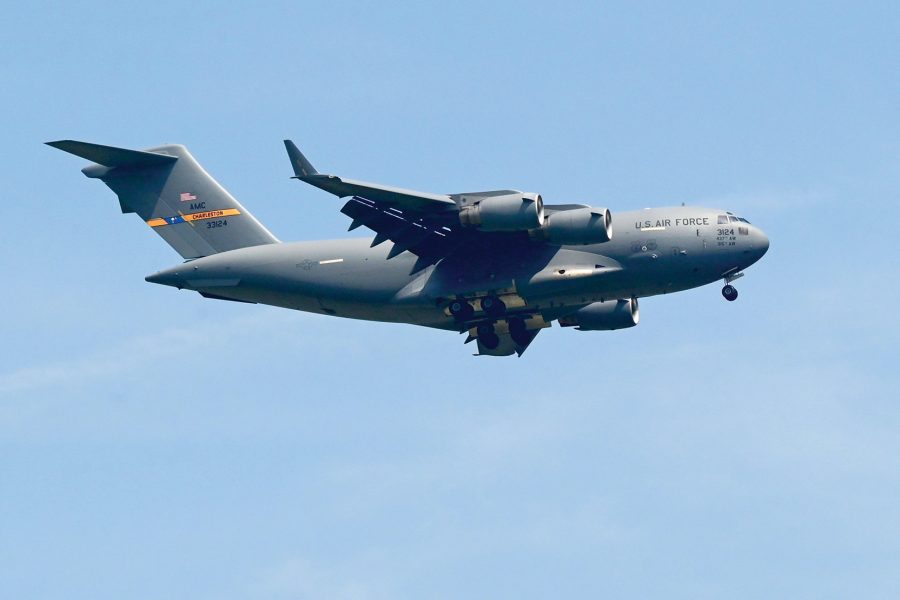A whistleblower complaint about overpriced lavatory soap dispensers for the C-17 Globemaster III triggered a Pentagon investigation that uncovered about $1 million in overpayments for spare parts and a lack of oversight by the Air Force over its contractor, Boeing.
The Department of Defense Inspector General investigation reviewed 46 different parts and found “the Air Force did not pay a fair and reasonable prices” for 12 of them. Pricing data for 25 other parts was unavailable because the Air Force lacked historical records for past orders. And in some instances the purchase price paid by Boeing did not match the listed unit price for some parts.
The Air Force has awarded multiple C-17 sustainment contracts to Boeing, which built the C-17, including $23.8 billion performance-based logistics deal for 2021 to 2031. Under that contract, Boeing purchases spare parts for the C-17, and the Air Force reimburses it for the expense.
Among the 46 parts examined, the IG found the Air Force “paid reasonable prices for nine,” overpaid for 12, and that no clear answer could be found for the remaining 25. The IG defined “unreasonable” as 25 percent or more above list price.
“Boeing is responsible for being an effective agent of the Government when purchasing the spare parts, which includes obtaining fair and reasonable prices,” the DOD IG said. “The Air Force is responsible for providing surveillance during performance of the contracts to ensure Boeing uses effective cost control.”
The inspector general found fault with both parties. A tipster calling the IG’s whistleblower hotline reported the cost of the soap dispensers, leading to the review that examined 46 parts purchased during the five years from 2018 to 2022.
The IG redacted details of prices and quantities in the public release, but it noted that the soap dispensers are equivalent to those used in a residential or commercial restaurant bathrooms and that the markup was 80 times over the commercially available cost. In all, the Air Force paid Boeing back nearly $151,000 for soap dispensers worth just over $2,000, a difference of $149,072, according to the report.
Other examples the report cited included a Pressure Transmitters, billed at 36 times the commercially available cost; a Protective Dust and Moisture Plug, billed at 55 times commercial cost, and Vaneaxial Fans, billed at 14 times the commercial rate.
The IG faulted Air Force acquisition officials for failing to exercise to exercise their oversight role and for not catching the wasteful spending.
Up until 2022, Boeing used a system called the BSRAM to generate an “estimate of the types and quantities of parts that Boeing believes will be required to meet contractual requirements based on stock levels, maintenance schedules, models that predict which parts will need replacement, and parts that will require repair in the next few years,” the report notes. Yet Air Force officials never validated the accuracy of the system. The IG found that a majority of the spare parts purchased were not included in the initial estimates.
The IG also faulted Air Force officials for failing in their “surveillance” role when Boeing paid significantly more than it said it would. Officials never reviewed spare parts invoices, they told investigators.
“Until the Air Force establishes controls to require contracting officials to review spare parts purchases throughout the execution of the contract, the Air Force will continue to overpay for spare parts for the remainder of the … contract,” the office warned. “Furthermore, if the Air Force continues to overpay for spare parts, it will result in less funding for spare parts, which may reduce the number of spare parts that Boeing can purchase on the contract.”
The IG recommended that the Air Force Life Cycle Management Center and the C-17 program office develop controls for reviewing Boeing’s reports on material costs, require the contractor to notify the office if spare parts costs rise 25 percent or more above expected pricing, and regularly review invoices and spare part prices.
AFLCMC agreed with the recommendations. But the IG said AFLCMC officials did not not address its specific concerns, so its recommendations remain unresolved.
The DOD IG has previously criticized Air Force’s processes for buying spare parts. In August, the agency released a report faulting USAF for lacking proper guidance and controls for instances where contractors must pay it back for spare parts deemed defective. That report, which focused on C-130 aircraft, said the Air Force is frequently left with millions of dollars’ worth of parts that can’t be used, sometimes resulting in additional spending to get aircraft fixed and flying again.
